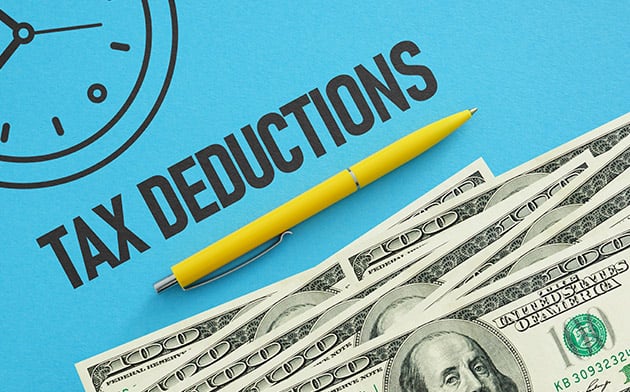In the market for a new vehicle? Or financing a brand-new vehicle purchased in 2025?
Beginning with the 2025 tax filing year, a new federal law will allow some borrowers to deduct the interest paid on qualifying auto loans—a first for many consumers—which could result in extra savings at tax time.

However, like most tax updates, you’ll want to understand all the details before taking advantage of it.
What’s changing?
Under recent legislation, qualifying consumers can deduct up to $10,000 per year in auto loan interest for personal-use vehicles purchased after December 31, 2024. Since most people pay well below that in interest each year, the average borrower’s savings could range from a few hundred dollars to over $1,000. The deduction applies whether or not you itemize your taxes and runs through 2028.
To qualify, vehicles must be new, weigh less than 14,000 pounds, and be assembled in the United States. ATVs, trailers, campers, used cars, and vehicles assembled abroad are not eligible. Borrowers will also need to report their vehicle identification number (VIN) when filing their taxes, and lenders will be required to submit new IRS forms if you pay more than $600 in interest.
If you’re looking to take advantage of the new auto-loan deduction and need a loan, SELCO has you covered. Visit selco.org/auto to see our rates, compare cars from local dealerships, and apply.
Other policy shifts to watch
The auto-loan deduction is just one of several tax changes that could affect your financial planning in the coming months. Here are a few others to keep in mind:
- Student loan repayment plans. Interest paid on federal student loans resumed August 1, 2025, ending the COVID-19 pause. A new repayment plan called the Repayment Assistance Plan (RAP) will start in July 2026, potentially increasing monthly payments for many borrowers.
- Tax credits for green home upgrades. Time is running out on tax credits that homeowners can claim for energy-efficient home improvements, like solar panels or heat pumps. These credits expire at the end of 2025.
- Peer-to-Peer Payment App Tax Reporting. Starting with the 2025 tax year, platforms like PayPal and Venmo will send tax forms (Form 1099-K) to users who receive $2,500 or more in payments for goods and services—down from $5,000 in 2024. This means more users need to report income from these apps.
Before making any decisions concerning these tax changes, be sure to consult a tax professional to determine the best path forward.


